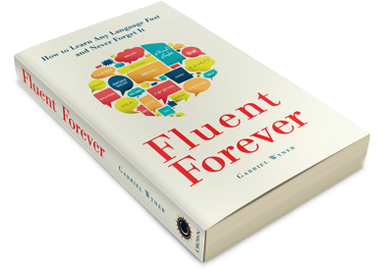 When it comes to language learning, very often books and blogs are overly dogmatic on their recommended methodologies ("This is absolutely the only way you can learn the language"), or they promise more than they can deliver. For example, Tim Ferris is a guy with many interesting things to say, but you must take him with a grain of salt. On his blog and in his books he makes the claim that one can learn a language in only three months using various "language hack" techniques. I am deeply interested in ANY WAY I can make memorization and learning languages easier, so I make sure to at least investigate any article or book that claims to help with this. While many suggestions made by Tim Ferris and others like him are helpful, very often they are not realistic. (Heck, there is a website where "fluent in 3 months" is literally in the URL)
When it comes to language learning, very often books and blogs are overly dogmatic on their recommended methodologies ("This is absolutely the only way you can learn the language"), or they promise more than they can deliver. For example, Tim Ferris is a guy with many interesting things to say, but you must take him with a grain of salt. On his blog and in his books he makes the claim that one can learn a language in only three months using various "language hack" techniques. I am deeply interested in ANY WAY I can make memorization and learning languages easier, so I make sure to at least investigate any article or book that claims to help with this. While many suggestions made by Tim Ferris and others like him are helpful, very often they are not realistic. (Heck, there is a website where "fluent in 3 months" is literally in the URL)Often a great deal of actual good advice is buried under a mountain of fluffy anecdotes or buzzfeed-style lists of "why being multilingual is good." Often the people writing such advice have the financial freedom to spend a great deal of time learning languages without worrying about a job (Or they are making money selling books about their "secret techniques").
Considering the current landscape of language learning books and internet material, when I saw the book "Fluent Forever," I was fairly skeptical. But after reading the book in its entirety, I was pleasantly surprised at how reasonable the advice of the book is.
Here are some of the most valuable points covered in the book:
-The core message is that Spaced Repetition Systems (SRS) should be used to "save your language mementos" that you gather while studying (Rather than a tool for bulk memorization with no context). This is accurate, because learning is done BEFORE memorizing (Not often recognized or enforced in language courses or schools).
-The internet is the world's biggest picture book. Instead of making flashcards that have things written in your native language ("Cat" or "dog"), flashcards should feature a picture of the thing you are trying to remember.
 -Looking up words IN THE TARGET LANGUAGE will yield different results when compared to looking up the same word in your native language. This is because the pictures are filtered through the culture of your target language, and the overall images you see reflect the different thinking of those people. For example, "hot" in English easily includes to "sexually attractive," media that is popular in the cultural zeitgeist, and pictures of Will Ferrill ("So hot right now!").
-Looking up words IN THE TARGET LANGUAGE will yield different results when compared to looking up the same word in your native language. This is because the pictures are filtered through the culture of your target language, and the overall images you see reflect the different thinking of those people. For example, "hot" in English easily includes to "sexually attractive," media that is popular in the cultural zeitgeist, and pictures of Will Ferrill ("So hot right now!").-Using "Google Image Search Classic" will show sentences that include the word you are looking up on Google. This is helpful in creating full sentence flashcards and can help expand your grammar.
-Using services such as lang-8 allow native speakers to correct your attempts at making sentences, providing quick feedback (Depending on the language you are learning), removing a bit of guesswork in your language acquisition life.
Overall I was happily surprised that it wasn't filled with more fluff and Malcom Gladwell-esque feel-good pieces that point towards vague non-insights (Nothing against Malcom Gladwell, I have read most of his books; not sure what that says about me, haha). This book is worth at least taking a look at.
Although I don't agree with everything he says in the book (I don't think EVERY language flashcard should be only pictures), I have reexamined my learning style in light of the suggestions in the book. If they prove helpful, I will elaborate more on them in the future.
(Picture of Mugatu from keyyys [Deviantart page])
It seems a bit like the tips from SuperMemo website, don't you think? Use SRS to maintain knowledge, understand before you memorize, use pictures, etc...
ReplyDeleteOne of the few frustrating things to me about knowledge acquisition is that, after learning some fundamentals, it seems you can't get much better. It all boils down to some fundamental tips again and again under different clothes.